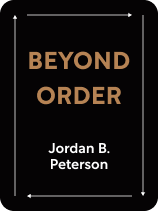

This article is an excerpt from the Shortform book guide to "Beyond Order" by Jordan Peterson. Shortform has the world's best summaries and analyses of books you should be reading.
Like this article? Sign up for a free trial here.
Remember the sense of wonder you had as a child? How much of that do you still have?
According to Jordan Peterson, beauty plays a vital role in life. In Beyond Order, he urges you to adopt this rule: Try to make one room in your home as beautiful as possible. He explains what difference this can make in your life.
Continue reading to learn about the importance of beauty from Peterson’s perspective.
Jordan Peterson on Beauty
According to Jordan Peterson, beauty is vital because it connects us to the sense of wonder and mystery that we felt as children. Without making room for beauty, we can lose touch with the mystery of life and the wonder all around us.
As children, we have no problem connecting to beauty. We see the world through fresh eyes, and we can feel wonder everywhere. But, with time, Peterson says, we lose this ability to perceive the wondrousness of the world. Instead, we fall into ruts and routines, and we start to take for granted the beauty that still exists all around us. It becomes mundane, drab, and familiar.
There is a way back to that child-like perception, however. Peterson argues that fine art can reconnect us with the beauty we saw as children. Great artists retain their child-like connection to wonder and can translate that unclouded perception into art. In other words, they capture what others can no longer see and render it visible to the rest of us. So, if you regularly engage with great art, you can find glimpses of that beauty and wonder.
(Shortform note: While Peterson argues that we inevitably lose our sense of wonder, it may be possible to practice feeling wonder through meditation. Some mindfulness techniques work to bring you into the present moment in such a way that you feel awe, wonder, and joy—similarly to how Petersons says that artists and children connect to wonder. Therefore, falling into ruts and routines may not be inevitable so much as likely but preventable.)
According to Peterson, this is why we’re so captivated by great art even though we often don’t consciously understand it: It reveals to us a depth of beauty that we could not previously perceive. So, make room for beauty in your life by getting at least one work of art that truly calls to you. By regularly reconnecting with beauty through that artwork, you’ll stay afloat despite the stresses and struggles of life.
| More Ways to Connect to Wonder Note that Peterson’s perspective on art is somewhat Western-centric and high-society, as he mainly focuses on fine oil paintings. Such art may not be accessible or appealing to everyone, and may not universally help people connect to beauty. Different forms of art may speak more to different people. In exploring the art you’d want in your life, consider not just paintings, but also fine music or theater, great poetry and literature, and critically acclaimed films or visual media. There are also other ways to cultivate a sense of wonder and joy in our lives. Spending time in nature, as well as practicing mindfulness and meditation, can both help reconnect us to a child-like sense of wonder and appreciation for the world around us. Ultimately, the key is to remain open and connect to beauty wherever it appears in your life. |

———End of Preview———
Like what you just read? Read the rest of the world's best book summary and analysis of Jordan Peterson's "Beyond Order" at Shortform.
Here's what you'll find in our full Beyond Order summary:
- A no-nonsense guide to navigating the chaos of our difficult world
- How and why you should listen to your conscience
- How to show up for life as fully as you can






